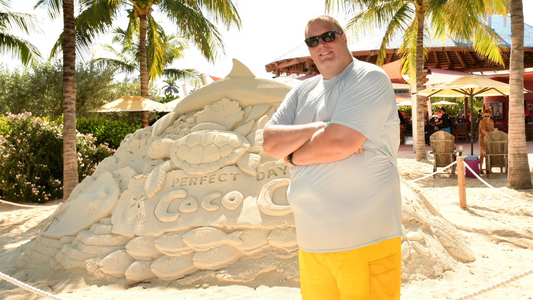

What To Do After a Marathon? Your Complete Guide to Marathon Recovery
ZOZOFIT knows that completing a marathon is an incredible physical and emotional milestone. With months of preparation and plenty of excitement on the day, it's easy to forget the importance of letting your body heal afterwards. Studies show that recovery matters, impacting the rate at which the body repairs from the stress of strenuous activity.
Here are our best tips for what to do after a marathon to help you bounce back stronger than before.
Why Post-Marathon Recovery Is Important
A healthy recovery depends on knowing what to do after a marathon and how it can impact your health. As with all intense physical challenges, proper rest and care allow your muscles and joints to heal and absorb the benefits of the work you do. While failing to properly rest hinders muscle growth and healing, effective recovery will set you up for even greater success in your future fitness endeavors. Never discount the importance of taking a necessary break.
What To Do After a Marathon
With so much focus on the marathon, you may not know what to do in the days after the race. In short, less is more! Follow these four steps for how to recover from marathon running.
1. Take a Break
Your weeks and days leading up to the big event likely included intense preparation and plenty of cardio. The heightened physical stress, culminating in the marathon itself, makes it necessary to give your body a break. Avoid running in the days following the race to give your joints and muscles relief from the impact.
It is not a good idea to cut off all physical activity. Instead, move slowly and intentionally, with minimal stress on your body.
2. Sleep
If you're wondering what to do after a marathon to truly help your body, the answer is simple: sleep! Along with diet, quality rest is the cornerstone of effective recovery from any intense physical activity. Make sure to block off evenings and mornings in the days immediately following race day to ensure full nights of sleep. Deep sleep stimulates and ensures muscle repair and growth, allowing your body to take in the benefits of the work you do.
3. Actively Recover
While rest and reduced activity are essential in the days following a marathon, you should judiciously continue to stay active. Part of resting should involve moving and stretching your muscles through the soreness. Failure to do so results in stiffness and prolonged soreness.
There are many enjoyable ways to actively recover, such as walking, light jogging, yoga, or a casual game of tennis. Experts also recommend swimming as an ideal activity because it works the muscles without impact.
4. Listen to Your Body
At the end of the day, you are the expert on your body. What to do after a marathon depends on the information the body gives you. Track physical changes compared to your pre-race physique immediately following the marathon.
If you continue to feel tired and sore, you might need to prolong your recovery. Perhaps you bounce back quickly, allowing you to move on sooner than you thought. In either case, let your body tell you what it needs and respond accordingly.

You made it across the finish line! Don't forget to take care of yourself once the marathon is over.
What To Eat and Drink After a Marathon
Alongside your physical activity, it is essential to carefully plan what to eat the week after a marathon. Remember these four key points as you map out your diet for the period after the race.
1. Water
Running a marathon will likely leave you dehydrated, even if you diligently drink fluids throughout. This is normal and does not mean you should overhydrate. Instead, plan your water intake carefully for the days following the run. Sipping on water constantly in the days after the race is your best bet, with an eye toward your urine color as an indication of what your body still needs.
Your best bet for hydration is plain water. Avoid commercial beverages marketed to athletes and marathon runners, as they often contain unnecessary ingredients.
2. Electrolytes
A crucial part of what to do after a marathon involves replacing what the body loses. This includes electrolyte intake. When you sweat, your body loses electrolytes (primarily sodium), which must be replaced to recover and rehydrate. While you can restore electrolytes through your diet, many runners choose an electrolyte supplement to add to plain water. Doing so ensures that electrolyte replenishment keeps pace with your water intake during and after the event.
3. Nutrient-Dense Foods
Be careful about what you eat in the days following a marathon. The speed and effectiveness of your recovery depend on the quality of the food you eat. Nutrient-dense foods are essential, so seek out plenty of fruits, vegetables, legumes, and whole grains. While you may have the urge to indulge after spending months monitoring your diet, try to limit junk food and focus on fresh and nutritious meals.
4. Protein
Your body knows what to do after a marathon; you just need to give it the right fuel to rebuild your muscles and stamina! Along with plenty of leafy greens, incorporate lean proteins into your meal planning. Salmon is an excellent choice, providing protein along with healthy fats. Beans, peas, and lentils are a wonderful source of protein, especially if you prefer to avoid meat and seafood. Specific forms of dairy, such as Greek yogurt or cottage cheese, can round out a protein-heavy day of eating.
How To Deal with Strain and Injuries
Sometimes recovery from a marathon isn't as smooth or straightforward as we would like. Part of the process of rebounding includes assessing for strains or injuries. If you feel any acute pain or discomfort, you should consult a medical professional to determine if you have any injuries that need special care. Catching severe issues as soon as possible will help you resolve them quickly and allow you to move on to the next adventure.
After a Marathon, Make Your Next Fitness Goal
With a clear plan of what to do after a marathon, you can reap the benefits of all the hard work you put in while keeping an eye on your next fitness goal. Learn more about the ZOZOFIT app and see how we can help you track the progress of your fitness journey.

![zf-w-[168px] zf-h-[40px]](http://zozofit.com/cdn/shop/t/15/assets/logo-desktop.png?v=117713855448369080381753069598)




